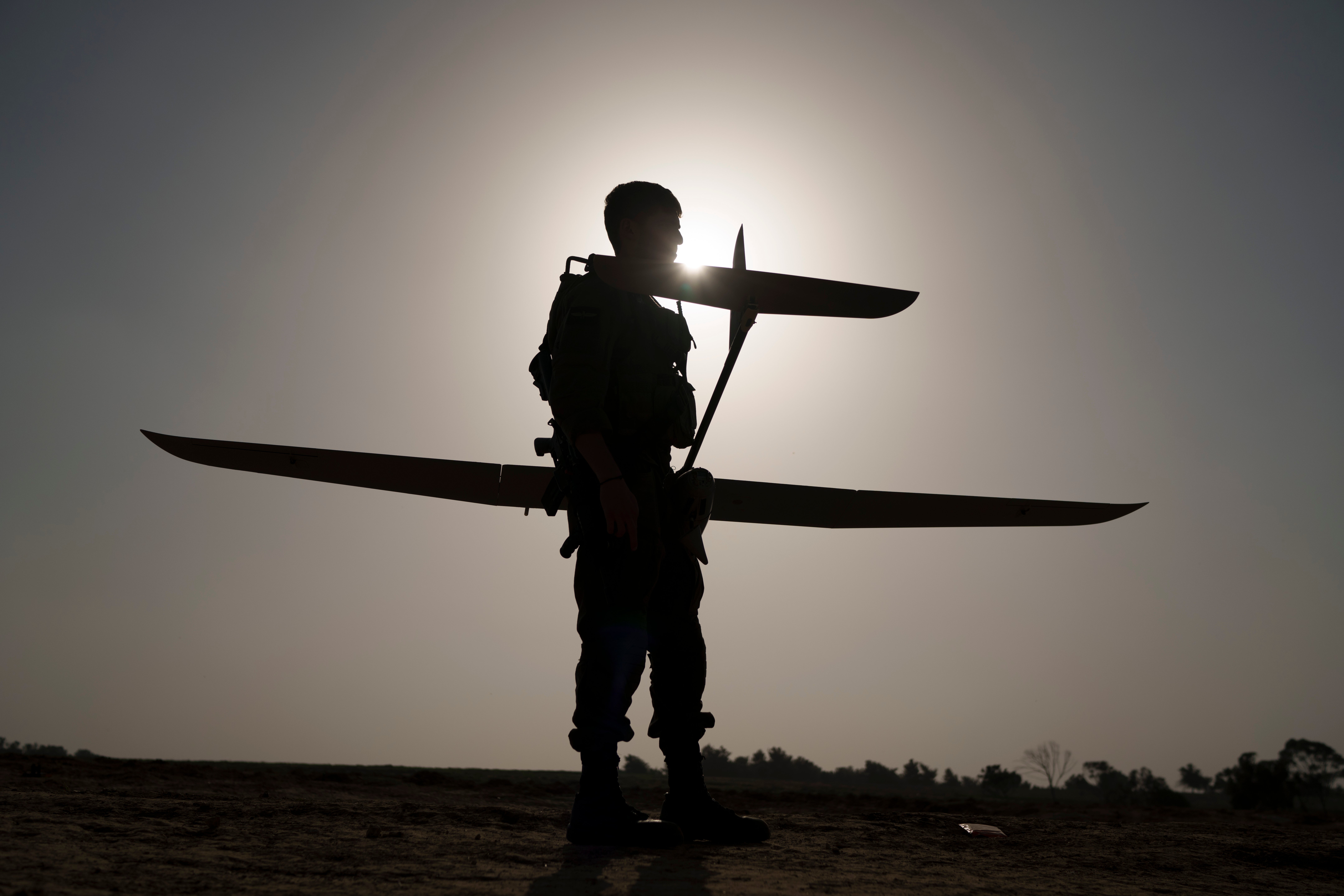US defends its veto of call for Gaza ceasefire while Palestinians and others demand halt to fighting
The United States defended its veto of a call for the immediate suspension of hostilities in Gaza at a U.N. meeting and again faced demands by the Palestinians and many other countries for a cease-fire now in the Israel-Hamas war – as well as by a group of rabbis in the balcony

Your support helps us to tell the story
From reproductive rights to climate change to Big Tech, The Independent is on the ground when the story is developing. Whether it's investigating the financials of Elon Musk's pro-Trump PAC or producing our latest documentary, 'The A Word', which shines a light on the American women fighting for reproductive rights, we know how important it is to parse out the facts from the messaging.
At such a critical moment in US history, we need reporters on the ground. Your donation allows us to keep sending journalists to speak to both sides of the story.
The Independent is trusted by Americans across the entire political spectrum. And unlike many other quality news outlets, we choose not to lock Americans out of our reporting and analysis with paywalls. We believe quality journalism should be available to everyone, paid for by those who can afford it.
Your support makes all the difference.The United States defended its veto of a call for the immediate suspension of hostilities in Gaza at a U.N. meeting Tuesday and again faced demands by the Palestinians and many other countries for a cease-fire now in the Israel-Hamas war – as well as by a group of rabbis in the gallery.
U.S. deputy ambassador Robert Wood called the Russian-proposed amendment to a Dec. 22 Security Council resolution which it vetoed “disconnected from the situation on the ground.” The council then adopted a watered-down resolution, with the U.S. abstaining, calling for urgent steps to immediately allow expanded humanitarian aid into Gaza, “and to create conditions for a sustainable cessation of hostilities.”
Wood called it “striking” that those urging an end to the conflict have made very few demands of Hamas, following its surprise Oct. 7 invasion of southern Israel that killed around 1,200 people, “to stop hiding behind civilians, lay down its arms, and surrender.” And he reiterated ongoing U.S. efforts to secure a “pause” in the fighting to get 136 Israeli hostages out of Gaza.
The U.N. General Assembly was meeting because of a resolution it adopted in April 2022 requiring any of the five permanent Security Council members — the U.S., Russia, China, Britain and France — that vetoes a resolution to explain why to the 193-member world body.
The U.S, only got support Tuesday from Israel’s U.N. Ambassador Gilad Erdan who said a cease-fire would be “a victory for Hamas … to continue the reign of terror in Gaza,” which it has ruled since 2007.
He said Israel supports every effort to deliver aid and accused Hamas of looting humanitarian assistance before it reaches the people of Gaza. He also accused the United Nations of becoming “an accomplice to terrorists,” being “obsessed” with Gazans, ignoring Israeli victims and doing nothing to bring the hostages home, and remaining silent on condemning Hamas.
To illustrate the plight of the hostages, Erdan brought a cake with him for Kfir Bibas who will turn one-year-old in the coming days while in captivity. He accused the U.N. of all but forgetting the pain of the innocent baby and asked the General Assembly president to leave the cake – with the name Kfir on it – on the speaker’s podium “as a painful reminder.” But as soon as Erdan finished, a U.N. staff member whisked the cake away.
As a sign of the growing division among Jews over the war, three dozen rabbis from the group Rabbis 4 Ceasefire came to the U.N. as tourists to protest Israel’s offensive in Gaza. The majority of them briefly held signs in the empty Security Council chamber saying “Biden Stop Vetoing Peace,” and a small group called for a ceasefire from the balcony of the General Assembly chamber before being hustled out by U.N. security officers.
Wood, the U.S. envoy, praised U.N. humanitarian efforts, telling the assembly “the United Nations is playing an irreplaceable role in delivering and distributing lifesaving assistance to people in Gaza."
U.N. spokesman Stephane Dujarric said the U.N. has seen no reports of looting — just videos of some hungry, desperate people trying to take food from trucks — and reiterated that delivering aid to combat zones is very challenging.
The Health Ministry in Hamas-run Gaza has said Israel’s military campaign has killed over 23,000 people, more than two-thirds of them women and children. The count doesn’t differentiate between civilians and combatants. Last Friday, U.N. humanitarian chief called Gaza “uninhabitable” and said “People are facing the highest levels of food insecurity ever recorded (and) famine is around the corner.”
Riyad Mansour, the U.N. Palestinian ambassador, told the assembly his people are “being slaughtered,” and declared “the horrors need to end and the only way to end them is a ceasefire.”
“The whole world is calling for an immediate humanitarian ceasefire,” he said, pointing to the 153 countries that supported a General Assembly resolution urging an end to the fighting along with U.N. Secretary-General Antonio Guterres, humanitarian organizations, and “moral voices.”
Cuba’s U.N. Ambassador Gerardo Peñalver Portal called it “deplorable” that the Dec. 22 resolution didn’t include a call for an immediate cessation of hostilities, saying a ceasefire is “a priority to halt the genocide against the Palestinian population.”